Yes. We are here to tell you that blogging, will in fact help your business.
92% of companies who blog multiple times per day have acquired a customer from their blog (Source: Hubspot).
Not only should you be blogging for your business, but for yourself as well. Blogging is one of the best ways of establishing your brand as a titan of industry. Ok, well at least an expert. Your blog can be one of the major entry points for your website, and when done the right way, it can be a major source of leads for your business, non profit organization or educational institution.
One of the biggest obstacles to blogging, and content marketing in general, is actually producing it. Writing can be an extremely time consuming task which involves so much more than the act of thinking what words to put together to form sentences. For those who have yet to dive into the wonderful world of blogging, you may be asking yourself, “Where do I start?”
There’s a lot of blogging going on and its tough to break through the onslaught of content being force-fed to the general public at all times.
The first thing you need to do is thinking about your audience (i.e. customers and prospects), and determine what type of subject matter in which they would be most interested. Obviously, this should correlate to your business and its products and/or services. Do you have particular insight about how to solve a particular problem that your customers regularly encounter? Write about it! Did you come across something specific to your industry, such as a technological advancement or company merger? Write about that, too! Basically, what you want to do as much as you can is distribute content and subject matter that is meaningful to your audience.
Start making a list of blog topics based on search engine activity.
A great way to plan your blogging activity is to develop a list of blog topics based on how your audience may be searching online in regard to their business or profession. Use the keyword research tool in Google Analytics to find out what type of search terms your customers and prospects might be using. Generally, people are using what’s called long tail search terms. Instead of two to three word keyword phrases, searches are often times submitted in the form of a question. For example, a development director at a college or university may search, “How to increase donations with alumni”; a business owner might search for “Will blogging help my business?”...wink wink….When you find out what keyword phrases are getting higher traffic volumes, you can essentially use that information to develop your blog topic list.
Once you get your list started, keep growing it. Blogging is not something you can do occasionally, when you have extra time. Unless you are going to be consistently publishing new articles, don’t bother. One or two blog posts are year probably isn’t going to help your brand grow. Ultimately, your marketing plan should indicate the appropriate time tables and frequencies for your content distribution.
Since you can never have enough blogs cued up and ready for posting, it may be a good idea to get as may people from your company or organization to start writing. Have them blog about topics that relate to their skill set. You may even consider incentivizing them financially – it’s that important. Another great idea is to recruit guest bloggers. It’s win-win for both parties as you need content and the writers are always looking to build credibility and expand their reach. To keep track of all this, there’s plenty of great apps and browser based platforms such as Teamwork PM, which is what we use at Milk Street Marketing.
Ok, so now you have a bunch of blogs posted on your site. Now what? Well, you can sit around and wait for search traffic to click through, or you can push that awesome content out there on….where else, social media (ding ding ding ding)! Since blogs essentially a page on your website, they are pretty ubiquitous in terms of which social channels to use. By default, lean on the social networks where you already have built an audience.
Post on Facebook, Twitter, LinkedIn and Google+ at a minimum, but don’t forget about the lesser known social channels such as tumblr and reddit.
Before I wrap this up, I’ll leave you with one last though nugget. Have fun with it. Blogs do not have to be formal or super-structured. They are supposed to be light, and it’s ok if it’s not as buttoned up as the rest of the pages on your website. They should be in your distinct voice, and you should be speaking directly to the reader as if they just asked you the question in person (remember your blog titles). There are no hard-and-fast rules. Anything can be a blog post; a video, a case study, a recap of an awesome event your company hosted.
Now go crank out some blog posts!






